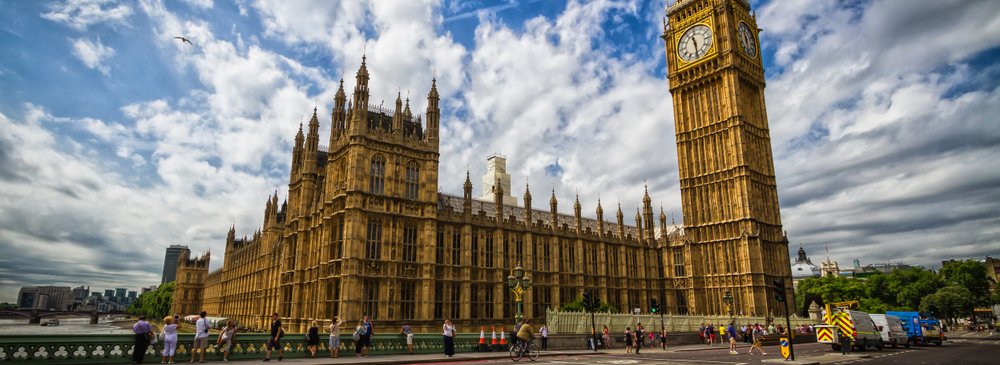| 6 mins read
The prime minister sits in the House of Commons. Yet the Cabinet Manual acknowledges that PMs have in previous centuries sat in the House of Lords and concedes that the role of prime minister is ‘governed largely by convention.’ In other words, there is nothing to prevent a premier sitting in the Lords instead.
Moreover, placing a prime minister in the Lords could offer several concrete advantages.
A premier without constituency could benefit from greater focus on national business, while also encountering the (supposedly) higher standards of deliberative debate in the upper chamber—standards that could serve as a kind of check against unrestrained executive power. From the point of view of the upper chamber itself, the presence of the nation's premier could bring new energy to a partly moribund institution, while also prompting debate over the composition and function of non-elective parts of the constitution. Lastly, a certain kind of political virtue attaches to moves that make governing more difficult. An ennobled PM would find it harder, not easier, to win parliamentary support for her or his government.
There would be downsides, of course. An ennobled PM would be less directly accountable to the people's elected representatives in the Commons, and less able to take the measure of the electorate's diverse interests. Placing the premier in the Lords would likely be interpreted as a message in support of political invulnerability. What’s more, the institution itself by no means faces a secure future, with Labour recently considering abolition of the Lords on the advice of Gordon Brown.
The prime minister and the Lords
The powers associated with the office of prime minister have developed alongside the office itself. Nevertheless, there are numerous typologies of the responsibilities of the British prime minister, ranging from the aforementioned Cabinet Manual to Lord Hennessey's exhaustive cataloguing in 2011.
Only three functions listed by Hennessy would entail significant changes with a Lords-bound PM: 1) party political appointments to the House of Lords; 2) answering questions for thirty minutes on Wednesdays when the House of Commons is sitting; and 3) using the royal prerogative to ratify or annul treaties.
Regarding the first function, an ennobled prime minister would probably cease to make decisions on party-political appointments to the Lords, since continuing to do so would raise a conflict of interest. This could represent a significant move towards separating membership of the upper chamber from prime ministerial patronage. The move would also likely limit the number of new peers created, which has ballooned in recent years.
Regarding PMQs, there would undoubtedly be a significant change in tone. Lords debates are more deliberative, more reason-governed and less narrowly partisan, due to the relative political freedom afforded by lifetime terms, and the presence of experts and a large body of crossbenchers. While a Lords-based PM might feel less in touch with diverse constituencies, they may also feel empowered to rise above the brouhaha of day-to-day Commons business and take a longer-term, more strategic view of national interest.
Regarding the third function, the Constitutional Reform and Governance Act of 2010 effectively granted the House of Commons power to delay treaty ratification indefinitely. This could convey significant disadvantages to a premier in the Lords. On the other hand, there is no general requirement for parliamentary scrutiny on treaties, and Parliament has rarely debated treaties in recent years. In practice, this apparent disadvantage is unlikely to raise significant difficulties for the day-to-day fulfilment of the prime minister's role.
Finally, a Lords-based prime minister would have no constituency to manage, saving time and energy. This shift could also benefit those constituencies whose members might prefer a more present and active MP than a typically exhausted and distracted PM.
The Lords and the prime minister
A common critique of contemporary premiers is that they neglect parliamentary duties in the Commons in favour of less arduous activities elsewhere. Perhaps the comparative tranquillity of the Lords would persuade a peer PM to spend more time in the chamber, encouraging greater attendance on the basis of the chamber's enhanced prestige and relevance, and enlarging the pool of available expertise.
This shift could also be strengthened by the aforementioned decline in partisan appointments. In practice, true independence from party politics would be difficult to achieve, considering the desirability of ensuring that the Lords reflects the population’s party preferences. Nevertheless, with careful design, these and other challenges could be engaged with, and point to the potential for a revitalised, trimmed down, and more effective upper chamber compared to current arrangements.
Non-electoral legitimacy and democratic politics
A Lords-based premier would not only bring about changes in constitutional function but would also prompt wider and more thorough reflection upon the role of non-elected stakeholders in politics. This would entail moving beyond the misleading view that legitimacy in public decision-making flows solely from elections, and embracing instead the more rounded view that expertise and engagement should also play a role in ensuring that all relevant viewpoints are well represented in public debate.
Merely considering the option of a red-bench PM forces us to think deeply about the roles of both the premier and the UK's second chamber, question our assumptions about electoral legitimacy and representation, and consider a more expansive concept of democracy in which non-elected stakeholders can play an active role in bringing experience to bear upon law-making and scrutiny.
Need help using Wiley? Click here for help using Wiley


